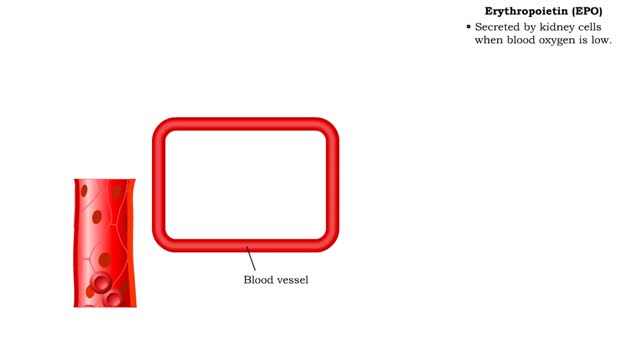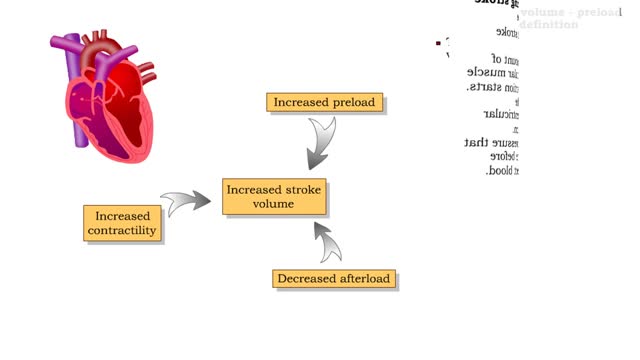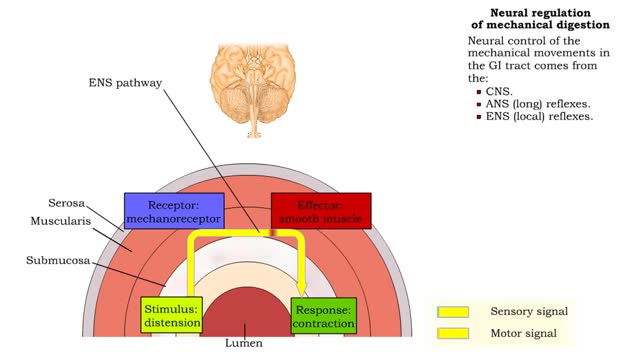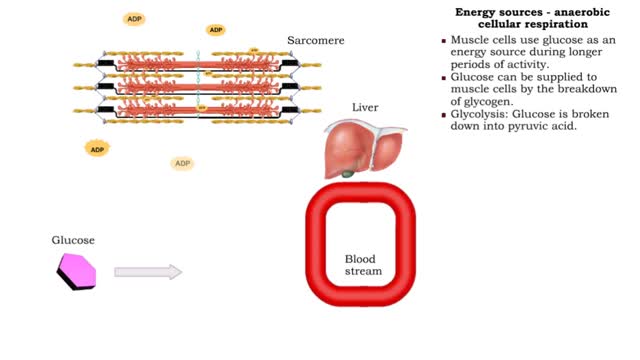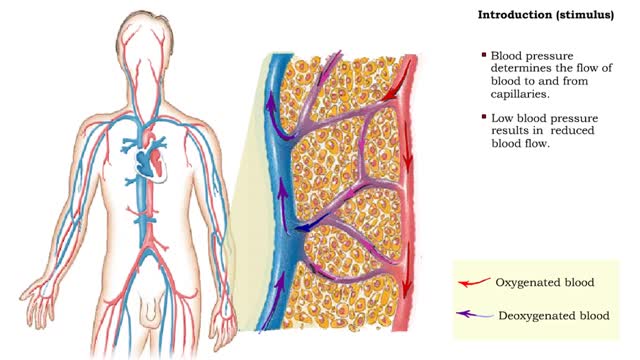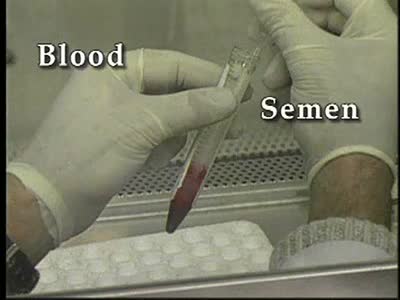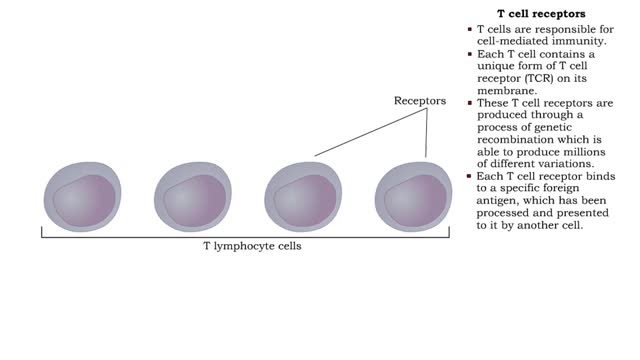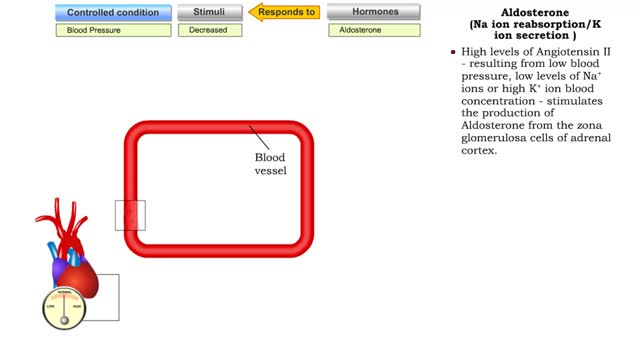Search Results
Results for: 'Electrical Conduction System of the Heart'
Red Blood Cells - Erythropoietin (EPO)
By: HWC, Views: 10815
• The endocrine system maintains many body conditions within normal limits with feedback loops. Each endocrine feedback loop maintains homeostasis using the following components: • Stimulus - a change in a body condition. • Production cell - an endocrine cell that produces a hormone aft...
Definitions of stroke volume, preload definition & Factors influencing stroke volume
By: HWC, Views: 10702
• Stroke volume is directly correlated with cardiac output-the greater the stroke volume the greater the cardiac output. • Stroke volume represents the difference in the amount of blood between: • the volume in the ventricles at the end of diastole (end-diastolic volume EDV); • the ...
Neural regulation of mechanical digestion- CNS voluntary, ANS & ENS controlled involuntary movements
By: HWC, Views: 10820
• The gastrointestinal [GI] tract is basically a muscular tube that contains and processes food as it moves from the mouth to the anus. • Mechanical digestive functions consist of both voluntary and involuntary muscle contractions and relaxation including: • Chewing and swallowing food....
By: HWC, Views: 11094
• The amount of ATP stored in a skeletal muscle cell can only provide muscular activity for two to three seconds. • Muscle cells must be able to generate additional molecules of ATP to continue contracting. • Muscle cells can generate ATP from several processes: • Phosphogen syste...
Interview with Person who has Panic Attacks
By: Administrator, Views: 14028
Panic attacks are sudden periods of intense fear that may include palpitations, sweating, shaking, shortness of breath, numbness, or a feeling that something bad is going to happen. The maximum degree of symptoms occurs within minutes. Typically they last for about 30 minutes but the duration can...
By: HWC, Views: 10578
• Blood pressure determines the flow of blood to and from capillaries. • Low blood pressure results in reduced blood flow. • High blood pressure can cause blood vessels to break. In humans, sensitivity is due to portions of the nervous system called receptors. Receptors are typicall...
Introduction to Human Immunodeficiency Virus (HIV)
By: Administrator, Views: 13817
Human immunodeficiency virus gains entry into helper T cells, uses the cell DNA to replicate, interferes with normal function of the T cells, and destroys the normal cells. 1 in 10 persons with AIDS: age 50 or older. 4% of all AIDS cases: age 65 or older. AIDS’ main form of treatment: an...
By: HWC, Views: 10558
• T cells are responsible for cell-mediated immunity. • Each T cell contains a unique form of T cell receptor (TCR) on its membrane. • These T cell receptors are produced through a process of genetic recombination which is able to produce millions of different variations. • Each T ce...
Atrial natriuretic peptide (vasodilation) & Aldosterone
By: HWC, Views: 10624
• Certain situations will cause the body's stress level to rise. • increased blood pressure will stretch the atria of the heart, stimulating the secretion of atria natriuretic peptide (MP). • ANP causes muscle cells in blood vessels to relax. • Blood pressure is lowered as a result ...
Advertisement



